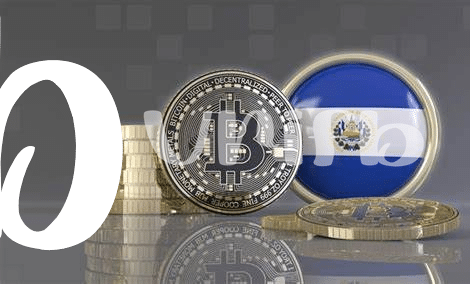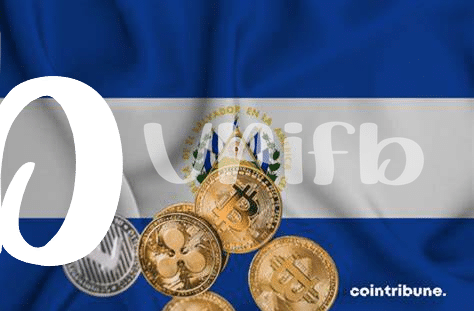El Salvador’s Bold Move into Cryptocurrency Realm 🌎

El Salvador’s recent foray into the cryptocurrency realm marks a pioneering move that has captured the attention of the global community. By adopting Bitcoin as legal tender, the small Central American nation has embarked on a bold experiment that could have far-reaching implications for the future of finance. This significant decision has positioned El Salvador at the forefront of the digital currency revolution, challenging traditional monetary systems and sparking debates on the potential benefits and risks associated with embracing cryptocurrencies on a national scale. With this bold leap, El Salvador has set a precedent for other countries to consider the incorporation of digital assets into their economic frameworks, ushering in a new era of financial innovation and inclusivity.
Global Reactions: from Applause to Apprehension 🌍
El Salvador’s move to embrace cryptocurrency has sparked a range of global reactions, reflecting the diverse perspectives on this bold shift in financial policy. While some applaud the country’s innovative approach and pioneering spirit in adopting Bitcoin as legal tender, others express apprehension about the potential risks and uncertainties associated with such a radical move. The reactions from around the world vary from enthusiastic support for El Salvador’s venture into the crypto realm to cautious skepticism regarding the long-term consequences of this decision.
This significant development has not only captured the attention of the cryptocurrency community but has also reverberated across traditional financial systems, prompting reflections on the implications for established monetary frameworks. As El Salvador blazes a trail in integrating digital currencies into its economy, the global financial landscape stands poised for potential transformations, with implications that could extend far beyond the borders of this Central American nation. Whether this venture will pave the way for widespread adoption of cryptocurrencies worldwide or encounter challenges that warrant closer scrutiny remains a topic of ongoing debate and scrutiny.
Implications for Traditional Financial Systems 💸

El Salvador’s adoption of cryptocurrency presents a significant paradigm shift in the traditional financial landscape. The implications for longstanding financial systems reverberate on a global scale, prompting both excitement and unease among various stakeholders. The integration of cryptocurrency alongside conventional monetary frameworks poses challenges as well as opportunities, sparking discussions on the future of finance. The potential disruption to established banking models inherently forces a reevaluation of the status quo, provoking debates on regulatory frameworks and economic stability. As El Salvador’s bold move challenges the traditional notions of currency and financial governance, it sets the stage for a potential reshaping of the financial ecosystem worldwide. The dynamic interplay between traditional financial systems and emerging digital currencies underscores the need for adaptability and innovation in a rapidly evolving economic landscape.
Potential Impact on Worldwide Crypto Adoption 🚀
El Salvador’s decision to embrace cryptocurrency holds the potential to revolutionize the global landscape of digital currencies. By officially recognizing Bitcoin as legal tender, El Salvador has opened up new avenues for worldwide crypto adoption, paving the way for other nations to follow suit. This bold move signals a shift in traditional financial systems towards a more decentralized and inclusive approach, with the potential to empower individuals around the globe to participate actively in the digital economy.
The impact of El Salvador’s crypto stance extends beyond its borders, with implications for the future adoption and acceptance of cryptocurrencies on a global scale. As more countries observe and assess the outcomes of El Salvador’s initiative, the path towards mainstream crypto integration appears increasingly tangible. This pivotal moment in financial history not only challenges existing norms but also sets a precedent for the future direction of digital currencies worldwide. To delve deeper into the evolving landscape of cryptocurrencies and governmental perspectives, explore the government stance on the future of cryptocurrencies in Djibouti.
Challenges and Controversies Surrounding El Salvador’s Decision 🤔
El Salvador’s decision to embrace cryptocurrency has sparked a wave of challenges and controversies, both domestically and on the global stage. One of the main points of contention surrounds the potential risks and volatility associated with cryptocurrencies, particularly in a country like El Salvador where access to financial education and resources may be limited. Critics also raise concerns about the government’s ability to effectively regulate and secure these digital assets, pointing to past instances of hacks and scams in the crypto space. Additionally, there are fears that this move could exacerbate existing economic inequalities within the country, as those with greater access to technology and knowledge about cryptocurrencies may benefit more than marginalized populations.
Moreover, El Salvador’s decision to adopt Bitcoin as legal tender has raised questions about the compatibility of traditional financial systems with the rapidly evolving world of digital currencies. Central banks and financial institutions worldwide are closely watching this experiment, wary of the potential disruptions it could bring to the established monetary order. The pushback from international organizations and governments reflects a broader skepticism about the long-term viability of cryptocurrencies as mainstream forms of payment.
Future Outlook: Shaping the Path for Other Nations 🌐
In the ever-evolving landscape of cryptocurrency adoption, El Salvador’s bold step towards embracing digital assets sets a precedent that other nations may consider. By officially recognizing Bitcoin as legal tender, El Salvador is charting new territory in the realm of traditional financial systems, potentially reshaping how countries worldwide view and utilize cryptocurrencies. The implications of this move extend beyond El Salvador’s borders, with global reactions ranging from support to skepticism. As the world watches the unfolding developments in El Salvador, other nations may look to its example when formulating their own stance on integrating cryptocurrencies into their economies. This could serve as a blueprint for countries seeking to navigate the opportunities and challenges presented by this emerging financial frontier. As each nation evaluates its position on cryptocurrencies, the decisions made will undoubtedly influence the future trajectory of how digital assets are perceived and utilized on a global scale.
Government Stance on the Future of Cryptocurrencies in Dominican Republic
